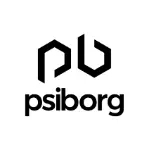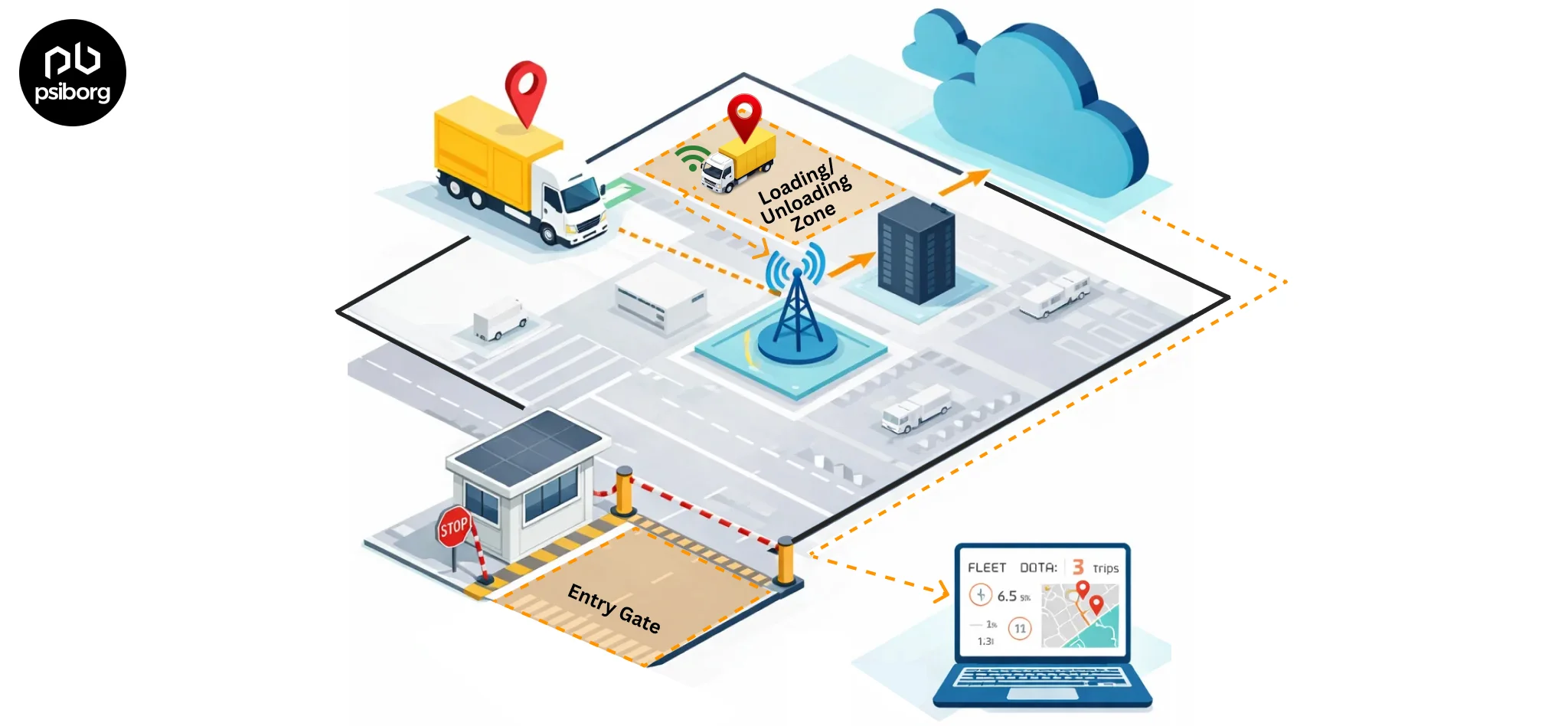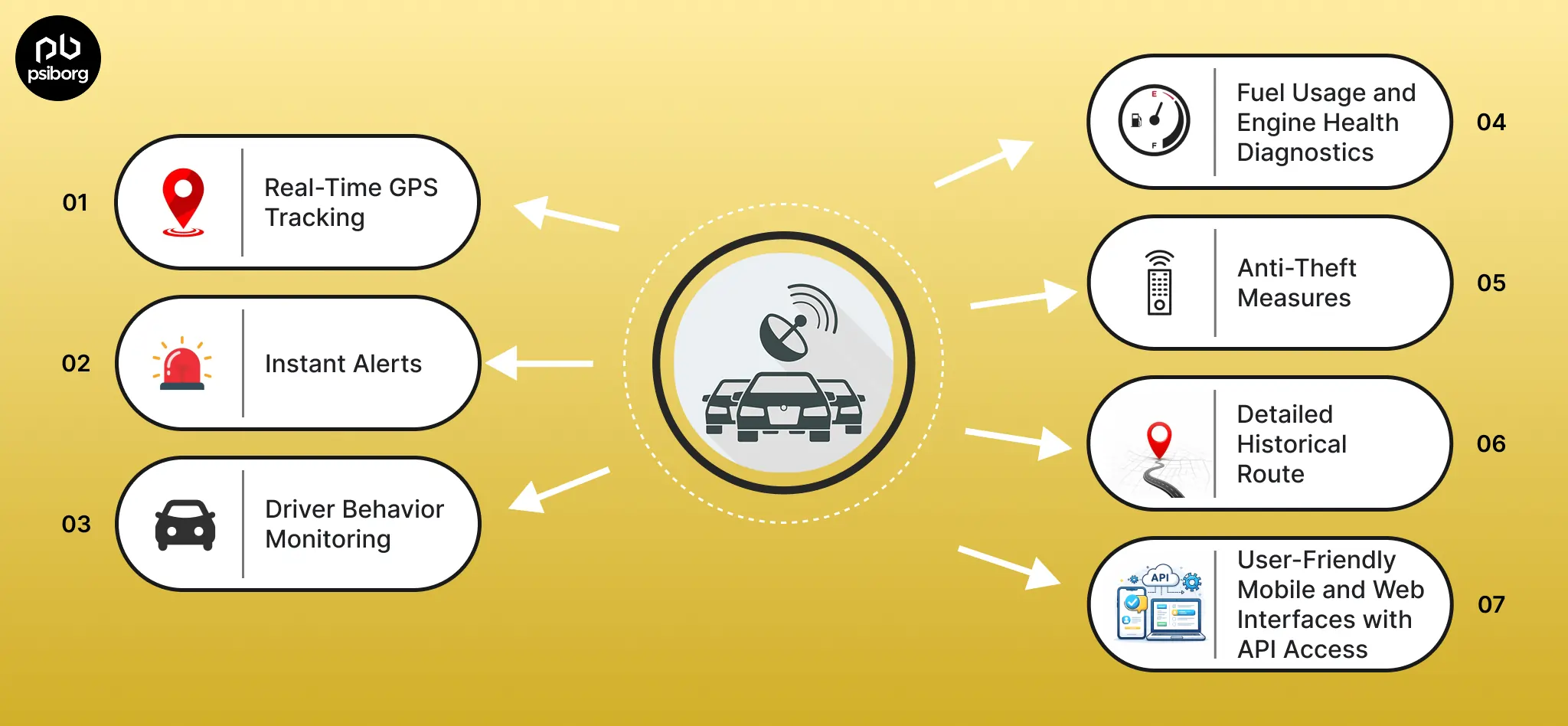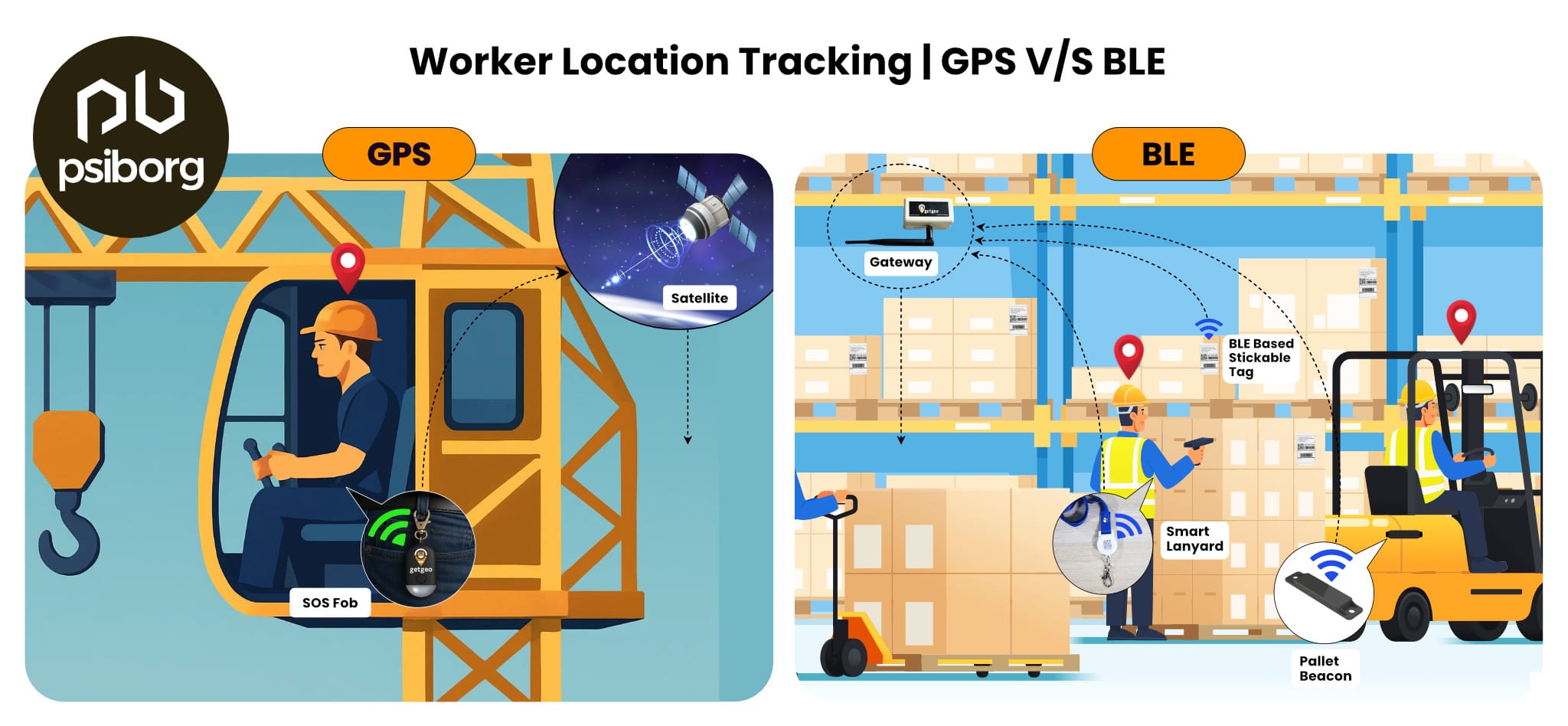Almost every aspect of our lives generates data, and this data is recorded, transferred, and monitored to provide us with new insights, boost efficiency, and allow companies to make informed decisions. Whereas, now enterprise leaders are beginning to realise the importance of the Internet of Things in businesses. IoT is being implemented in industries like healthcare, energy, inventory management, automotive, manufacturing, agriculture etc. It also has many applications like air tracking, doorbell cameras, security systems, thermostats, and many more. With more and more companies using the Internet of Things, the industrial Internet of Things market is only going to grow year after year.
HOW ARE BUSINESSES ADOPTING IOT IN MAJOR AREAS?
IoT has had a huge impact on industries like manufacturing, logistics, oil and gas, transportation, energy, mining, aviation, etc. So much so that a fourth industrial revolution has started. It represents a new stage in the organization and the control of the industrial value chain. Additionally, cyber-physical systems, more commonly known as smart machines, form the basis of this fourth industrial revolution (Industry 4.0). It is also predicted that 94% of businesses will use IoT by the end of 2021.
Let us take a look at the ways in which Industrial IoT (IIoT) is used in various sectors:
1. MANUFACTURING
Investment in IoT in the manufacturing sector can be divided into two categories:
INWARD FACING
It is concerned with optimising machinery and saving manufacturing costs.
In terms of inward-facing investments, companies try to use IoT to optimize their processes, monitor equipment 24/7, and maintain machine health through preventative and predictive maintenance.
OUTWARD FACING
It tries to make improvements in customer usage.
In terms of outward-facing use of IoT, products and services that are used by customers are examined by maintaining a network link to these products and services. In this way, manufacturers analyze results, and from the data collected, they try to see broad patterns in terms of how the product is used.
2. TRANSPORTATION
The transportation industry has invested heavily in IoT technology. In fact, in 2016, $55.9 billion was only earned from Fleet Management devices. Increasing the number of sensors in vehicles can help schedule maintenance, optimize fuel consumption, ensure the safety of the driver, and monitor driving behaviour for insurance purposes. Digital recorders are programmed to take videos and store them in the cloud under conditions of heavy acceleration, which might lead to serious accidents.
3. UTILITY MANAGEMENT
Utilities were one of the earliest areas that started investing in IoT. Smart grid meters are widely being used in the USA and several European countries. Moreover, these smart grid meters help track the number of energy users using green technologies for their energy needs. Several energy companies are turning to IoT devices to monitor their asset performance, enhance the customer experience, and overall boost their efficiency.
The use of IoT in oil and gas industry is a smart way to detect gas leakage. With a lot of pipes and valves spread across large areas, they use IoT technology to monitor the flow, pressure, etc. Appropriate authorities are instantly alerted when there is any kind of leakage or blockage.

4. HEALTHCARE
The use of IoT in the healthcare field is very broad, and this mentioned field here will see the highest growth in spending on IoT technologies. The applications of IoT range from tracking the health of patients, knowing their location at all times, monitoring and troubleshooting problems in equipment, and many more.
For example, connecting pacemakers to the internet can benefit patients by reducing errors significantly and providing more data to doctors for better diagnosis.
5. RETAIL
The retail industry has changed drastically in the past few years. Who could have thought that we could buy commodities just by sitting at home? It has been predicted that in the coming years, people will be able to try clothes using augmented and virtual reality headsets sitting in their houses. Not only that, but there is going to be an abundance of low-cost products on the market. Nevertheless, these products will be manufactured using IoT technology as per the requirements of the consumer. Therefore, it will ultimately lead to a reduction in food waste and the overstocking of perishable products.
6. FINANCIAL SERVICES
The financial and banking sectors are very concerned with security and thus rely heavily on networks of smart cameras and sensors. Besides this, the most important goal of companies in this sector is to expand the connectivity of their network. This not only helps with security but also provides better service to the customers, as they are becoming accustomed to managing their transactions through various connected devices.
As it can be seen, IoT has impacted all sectors of the industry. IoT has the capability to flourish a sector by automating various processes to yield better results.
IMPACT OF IOT ON USERS AND CUSTOMER EXPERIENCES
In these complex times, it has become extremely competitive and important to retain customers and keep them happy. Customers expect to have better experiences every time they use a product or service. It is important to understand the customer and their needs. Now, that is easier said than done. Many times, even the customer doesn’t know what they want. A good customer experience is when the customer’s experience matches all their expectations, and to achieve this kind of business success, efficiency and productivity with IoT technology are highly required.
BUT WHY ONLY IOT AND NOT SOME OTHER TECHNOLOGY?
Well, IoT is a network of interconnected devices that includes sensors, software, and network connectivity. All of this helps to accumulate and exchange data, making it more responsive. Hence, providing a better customer experience.
Here are some of the reasons why you should definitely consider using IoT for your business to improve the customer experience-
1. PERSONALISED COMMUNICATION
IoT generates tons of data that is very important for any business. From operational management to understanding customer behaviour, it all feeds on data. Using insights from data to personalise communication can result in increased customer satisfaction. With this data, you can provide products and services that the customer is looking for. You can do so by suggesting relevant products or guiding them to use a particular feature of the product. This makes the customer feel valued and creates a lasting bond with the business.
2. EXCEPTIONAL CUSTOMER SUPPORT
IoT plays a big role in creating a positive customer experience. This is because many times IoT sensors can foretell problems even before they occur. This automated system provides solutions to potential problems that might occur. This way the equipment is repaired before there is any downtime.

3. IMPROVING PRODUCTS AND SERVICES
From all the data that businesses accumulate, they can use it to their benefit to make new products and services. Feedback from customers can be used to make changes to existing products and services. From all the gathered analytics, companies can strive to improve their customer service and train their employees accordingly. eCommerce has particularly benefited from IoT. Based on a customer’s purchasing habits, IoT can help personalise their experience and recommend products accordingly.
4. PROVIDE SAFE ENVIRONMENT FOR CUSTOMERS
Internet security has become an issue for everyone. Businesses that provide a safe and secure online environment are preferred by most. Implementing IoT can provide this safety to the customers. As IoT devices monitor data in real-time, responding to suspicious activities right away becomes possible. Other than that, IoT makes use of biometric sensors and IDs for verification. This layered system provides maximum security to users.
HOW BUSINESSES ARE USING IOT TO IMPROVE THEIR BUSINESS?
If you are considering making use of IoT for your business, it is important to first understand the benefits of IoT for businesses and how this technology is transforming strategy and operations everywhere. Usage of IoT in businesses has led to their automation and has increased productivity in the process.
Here are some of the key ways in which IoT can benefit businesses–
1. INCREASED EFFICIENCY AND PRODUCTIVITY
According to a survey conducted by Forbes, 37% of executives who deployed IoT technology in their companies saw improved productivity and efficiency. IoT collects data on processes that make it easy to improve them in case of an anomaly. IoT can be used in numerous industries, in the manufacturing industry IoT devices help to track the demand and manage the production of parts and materials accordingly. For example, at a Ford factory in Spain employees’ uniforms are enabled with body tracking technology that informs them of their body vitals. It also alerts them in case of any leakage or environmental mishap.
2. IMPROVING CUSTOMER EXPERIENCE
When more and more data is generated, companies understand how their customers use their products and they can better understand their needs to improve the customer experience. It is very important to get positive reviews from customers otherwise it may lead to an eventual decline in the company’s market revenue. IoT has a very feasible solution to this problem. Facilitating the support team with improved tools for monitoring the customer’s problems can help with this. IoT helps resolve problems easily and at a faster pace.
Additionally, integrating chatbots and artificial intelligence with IoT can focus on customer satisfaction. Chatbots can improve the service by spotting some of the issues in the services and products along with synthesizing the data. Including AI in IoT can provide the company with valuable customer data using which they can provide instant support for the customers so that they can use the services and products better.
3. ASSET TRACKING AND INVENTORY MANAGEMENT
Manual asset tracking can be a tedious task and can take up a lot of workforces. Automating the process with the help of IoT applications can significantly reduce the time and effort required for asset tracking and inventory management. Using supply chains to track assets with IoT can help easily catch missing assets in transit. Installing IoT-based devices in the warehouse provides aid to manage inventory. Embedded surveillance systems can help prevent theft as well.
4. COST REDUCTION
As we saw in the previous point, IoT can help save on tasks that would otherwise require to be performed manually. Tasks like managing inventory, and monitoring different equipment like the heating and cooling systems can be performed by IoT devices which can save unnecessary trips from the technician. IoT-enabled sensors can monitor safety factors like air quality, temperature, etc. security systems can make use of sensor-enabled cameras and smart locks, and assets and inventory can be tracked with smart tracking devices.
5. APPLYING IOT SECURITY
Security concerns for companies are on the rise. Not only are they concerned about their physical security but security over the internet is also vital. Companies should practice the highest level of security when it comes to their data and the devices that access this data. Some IoT security measures that are in practice include-
- There are specific IoT devices that are made for security purposes. Some of these are designed to protect only the gateway, while others can protect all connected devices.
- It is important to evaluate the security of each component before they are installed. IoT devices that have a security certificate from the Industrial Internet Consortium should be used.
- It is very important to keep IoT software up to date. Out-of-date software can cause hackers to take advantage of vulnerabilities, which can cause security breaches in IoT devices.
- In addition to that, risk assessments and security checks should be done at regular intervals.
- All the data that is passed over the network should be encrypted. This helps reduce Man-in-the-Middle attacks. Almost all devices come with built-in encryption.
HOW IS IOT BRINGING A REVOLUTION IN BUSINESSES AND WHAT IMPACT DOES IT HAVE?
The Internet of Things is a very well-known technology today. There is hardly any industry where IoT hasn’t been implemented. As mentioned earlier, IoT is the main driving force of the fourth Industrial Revolution (Industry 4.0). Now the obvious question that comes to our mind is, What is Industry 4.0? Industry 4.0, in simple words, describes the growing trend of automation and data exchange on a network in technology and processes in the manufacturing industry. This automation results in machines being wirelessly connected to sensors that monitor and visualize the entire procedure. The connectivity of devices will become highly advanced once 5G is used fully-fledged. The complete rollout of 5G is going to result in faster response times and allow for near real-time communication between devices.
INDUSTRY 4.0 CAN BE CHARACTERIZED BY THE FOLLOWING-
- More automated than Industry 3.0.
- Works as a bridge between the physical and the digital world. They both get connected through the Industrial Internet of Things.
- A shift is seen from central industrial control to one where smart devices define the production steps.
- Products and services can be customised according to the user’s needs.
Incorporating IoT into businesses has led to companies coming up with innovative business models, Globalization has been taken to another level where businesses can compete in new markets, operational management has been optimized and all this together has led to better marketing and communication.
TOP COMPANIES THAT USE IOT
Listed below are some of the top companies that are bringing revolution by using IoT in their companies.
1. JIOBIT
Based in Chicago, Illinois, Jiobit is a real-time location tracker that is used by parents to track their children. This equipment is enabled with government-level encryption which means the data that contains daily routes and location history remains safe.
2. SIMPLISAFE
Located in Boston, Massachusetts, Simplisafe makes wireless/ cellular home security systems that not only provide information about the surroundings of the house but also are disaster-ready and are protected against power outages.
3. PSIBORG
Based in Noida, India, PsiBorg is one of the best IoT service providers in India that provides IoT solutions. They provide their services worldwide. Their niche includes developing tailor-made IoT devices in the sectors like Smart Agriculture, Home Security and Wireless sensor networks to automate various industries.
4. ROGUE WAVE SOFTWARE
Based in Louisville, Colorado, Rogue Wave’s services include API Management, Web and mobile embedded analytics. Platforms and tools created by this company are used in various industries like financial services, technology, healthcare, manufacturing, entertainment, etc.
5. 10TH MAGNITUDE
10th Magnitude is located in Chicago, Illinois. This company has expertise in data and DevOps. Cloud-based solutions by the company are provided by Microsoft Azure. Their services include data centre transformation, site reliability engineering application modernization and data intelligence.
6. INSPIRE
A cleantech company, Inspire, is located in Culver City, California. It provides cleaner and more efficient energy to its customers. The company provides 100% renewable energy through a “smart energy” subscription.
7. ARMIS
Located in Palo Alto, California, services by Armis include the elimination of security blind spots for businesses. It continuously monitors every device connected to the network. This way they can find out if any malicious content enters the network or any device.
These are just some of the examples, there are many other such companies in the field of healthcare, finance, security, cleantech, cloud services, etc. that provide popular IoT products and services.
WHICH INDUSTRY USES IOT THE MOST?
Well, not just one industry, there are multiple industries that are winning right now by incorporating IoT in their businesses. Namely-
1. HEALTHCARE
Applications of IoT in healthcare include monitoring patient health, tracking their location, HVAC (Heating, Ventilation, and Air Conditioning), Mobile healthcare, etc.
2. MANUFACTURING
IoT has reduced the health hazards that workers face in a warehouse. Every floor in the factory has an environmental sensor that alerts the people if the level of any component becomes abnormal. Departments like shipment tracking and inventory management have also benefited from IoT a lot.
3. TRANSPORTATION
Starting from self-driving cars to fleet management, applications of IoT in this sector are immense.
4. SMART WEARABLES AND HOME APPLIANCES
Personal health monitoring devices are very popular today. This helps to monitor the vitals of a person all-round the clock.
Similarly, to keep homes under surveillance 24/7 various IoT sensors and devices are connected in the house.
GENERAL STATISTICS ONE NEEDS TO UNDERSTAND BEFORE INVESTING IN INDUSTRIAL INTERNET OF THINGS

GROWTH OF IOT MARKET
The global market size of IoT in the year was found to be $308.97 Billion. Even though COVID-19 impacted the IoT market negatively in 2020, the future looks bright. The market is expected to grow from $381.30 billion in 2021 to $1854.76 billion at a CAGR of 25.4%.
North America is one of the biggest markets for IoT. Google, Cisco, and IBM are some of the leading companies that invest in the R&D development of IoT.
INDUSTRIAL INTERNET OF THINGS MARKET SIZE
In a research conducted in 2021, the IIoT market was valued at $144.3 Billion in 2020. Since a large number of companies are implementing IIoT for their growth, the market shows an upward trend for the upcoming years. Manufacturing, transportation, technology, infrastructure, and retail are some of the global industries that will be the market drivers for IIoT. Top companies are investing more into technologies that will reduce their maintenance costs and prevent unplanned equipment downtime.
For example, Huawei Technology and General Electric together have launched a Predictive Maintenance Solution which predicts maintenance time using IIoT.
GROWTH OF IIOT MARKET
The global IIoT market is expected to reach about $1119.4 billion by 2028, increasing at a 17% CAGR from 2021 to 2028. The growth of IIoT is expected to be driven by technological advancements in electronic devices, an increase in cloud-based storage, standardization of IPv6, etc.
All of these statistics show that IoT is here to stay and is going to grow immensely in the upcoming years. Hence, to stay updated with the technology, it is highly recommended to invest into IoT products and services to incorporate them into your business.
FAQ
Some of the top IoT solution providers are-
- Auriga, Inc., USA
- Softeq, USA
- Very, LLC, USA
- Softengi, Ukraine
- PsiBorg Technologies, India
- Order Group, Poland
Manufacturing, Financial Services, Farming, Security, Automobile, Healthcare, Retail, and Transportation, if your business is in any of these sectors, then IoT will prove to be very useful for your business. There are many industry-specific applications of IoT. But two major applications that are common for all industries are customer satisfaction and data-driven decisions.
The Manufacturing Industry has been hugely affected by IoT. Manufacturing businesses all over the world have invested heavily in embedded devices to monitor equipment and assets. Commonly referred to as “Smart Manufacturing”, making use of IoT technology in this field has improved the efficiency and productivity of manufacturing objects.
Also, Read IoT and Logistics.





